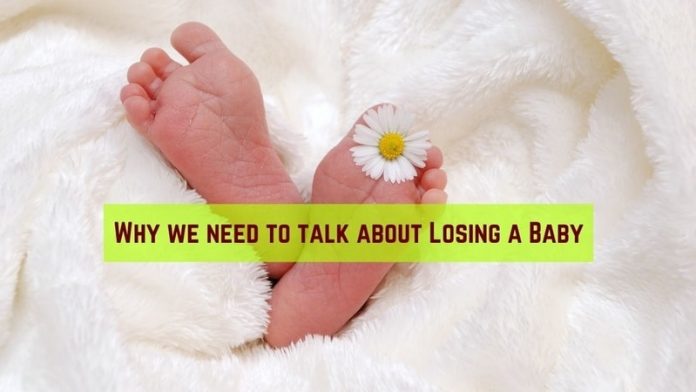Losing a fetus during pregnancy due to miscarriage or stillbirth is still a taboo topic worldwide, which is related to shame and shame. When the fetus dies during pregnancy or childbirth, many women are still not properly cared for politely. Here, we want to share with you stories from all over the world.
Miscarriage is the most common cause of losing a baby during pregnancy. Although the March of Dimes, an organization dedicated to maternal and child health, says that among women who know they are pregnant, the miscarriage rate is 10-15%, but estimates vary.
The definition of pregnancy loss varies around the world, but generally speaking, a fetus that dies before 28 weeks of pregnancy is called a miscarriage, and a fetus that dies at or after 28 weeks is called a stillbirth. Every year, 2.6 million fetuses are stillborn, and many of the fetal deaths can be prevented. However, even in developed countries, miscarriages and stillbirths are not systematically recorded, which suggests that these numbers may even be higher.
Women’s access to health care services varies across the world. Hospitals and clinics in many countries are often under-resourced and under-staffed. Although the experience of losing a baby can vary widely, shame, shame, and guilt have become common themes all over the world.
As these first-person accounts show, women who have lost a fetus feel that they should remain silent about their grief, either because miscarriages and stillbirths are still so common, or because miscarriages and stillbirths are considered inevitable.
Jessica, an American clinical psychologist, and writer
“As a clinical psychologist, I have focused on female reproductive and maternal mental health for more than ten years. It was not until this time that I experienced a miscarriage when I was 16 weeks pregnant. The pain and feeling enveloped by grief that the patients say. After the miscarriage, I conducted a lot of research, and the research showed that most women feel ashamed, blamed and guilty after losing their pregnancy.”
All these have caused great harm to women. Many women who lose a baby during pregnancy may continue to have mental health problems that last for months or years even if they later give birth to healthy children.
Cultural and social attitudes toward the loss of a baby can vary widely around the world. In sub-Saharan Africa, it is generally believed that the stillbirth may be due to witchcraft or evil spirits.
Lale, 44 years old, Nigerian pharmacist
“The miscarriage brought me trauma. Although I am also a doctor, the medical staff greatly deepened my grief. Another issue is cultural attitudes. In Africa, people think you will lose a baby because of curses or witchcraft. In Kenya, losing a fetus is surrounded by stigma, because some people think that a woman who has repeatedly lost her fetus may have something wrong. She may be promiscuity, so losing a fetus is seen as a punishment from God.”
There are many reasons for miscarriage or stillbirth, including fetal malformations, mother’s age, and infections, many of which can be prevented, such as malaria and syphilis, although finding the exact cause is often challenging.
Lisa, 40 years old, UK marketing manager
“I have miscarried four times. Every time this happens, part of you will die. The most painful is the first time. We are very excited about this new life. But when we had a scan for 12 weeks of pregnancy, the doctor Tell me that I had a missed abortion, also called a silent abortion, which means that the child died long ago, but there is no sign of my body. I broke down. I can’t believe they sent me home like this. , Keep the dead child in my stomach, and don’t give me any advice.”
Like other health issues such as mental health that are still taboo, many women say that regardless of their culture, education or upbringing, friends and family members are reluctant to talk about their losses. This seems to be related to talking about sadness generally shrouded in silence.
Susan, 34 years old, American writer
“I have been on the fertility train for nearly 5 years. Then I tried in vitro fertilization, but I didn’t know what would happen to me; it was so exhausting. Then I did get pregnant, and my husband and I were very excited. But a few weeks later the fetus stopped developing. Then the abortion took another 2 weeks to start, but it lasted 19 days. I didn’t know it would be such a tragic long-term bleeding experience. My view on health care is, We are not treated as individuals, just moved on a conveyor belt.”
Stillbirths occur late in pregnancy, half of stillbirths occur during childbirth, and many of them can be prevented. Approximately 98% of stillbirths occur in low- and middle-income countries. Providing higher-quality care during pregnancy and childbirth can prevent more than 500,000 stillbirths worldwide. Even in high-income countries, substandard care is an important factor in stillbirth.
There are definite ways to reduce the number of stillbirths—increasing access to prenatal care (in some parts of the world, women have not seen a healthcare worker after months of pregnancy), introducing continuous care through midwife-led care Nursing, and, where possible, the introduction of community care.
Combining the treatment of pregnancy infection, fetal heart rate monitoring, and delivery monitoring as part of a comprehensive care program can save 1.3 million babies who would otherwise be stillborn.
Emilia, 36 years old, Colombian shop owner
“When I gave birth to stillbirth in the 32nd week, my child already had a name. I had high blood pressure when I rushed to the clinic. After an examination, the doctor told me to take a break and prescribed antihypertensive drugs. For a week. Later, I still have the same symptoms. The doctor urged me to do an ultrasound, and then he told me that the fetus has no vital signs. If I can get more information from the beginning, and get more medical treatment at the critical moment of pregnancy If you take care of it, my child can be saved.”
The treatment women receive during pregnancy is related to their sexual and reproductive rights, and many women in the world do not have autonomy in this regard.
Social pressures in many parts of the world may mean that women become pregnant before they are physically or mentally prepared.
Even in 2019, there are still 200 million women who want to avoid pregnancy without access to modern contraceptive methods. When they became pregnant, 30 million women did not give birth in a health facility, and 45 million women did not receive prenatal care or received insufficient prenatal care. As a result, both mothers and babies faced greater risks of complications and death.
Cultural practices such as female genital mutilation and child marriage have caused great damage to the sexual and reproductive health of girls and the health of their children.
Premature birth is dangerous for both the mother and the child. Adolescent girls (10-19 years old) are more likely to develop eclampsia or uterine infections than women 20-24 years old, which may increase the risk of stillbirth. Women younger than 20 are also more likely to have babies with low birth weight, premature delivery, or serious illness in the first month after birth, all of which increase the risk of stillbirth.
Female genital mutilation increases the risk of women’s prolonged and obstructed labor, bleeding, severe tears, and the need for equipment to assist in delivery. Her child is more likely to need resuscitation during delivery and faces a high risk of death during or after delivery.
Women-centered care in nursing is essential to a positive pregnancy experience-the biomedical and physiological aspects of nursing need to be combined with social, cultural, emotional, and psychological support.
However, many women, even in developed countries where they have access to the best health care, do not receive adequate care after losing their fetus. The language used around miscarriage and stillbirth can be traumatic in its own right-referring to the terms “cervix atresia” or “dead egg” can be painful.
Andrea, 28 years old, Colombian stylist and singer
“When I was 12 weeks pregnant, I went for an examination and had an ultrasound. The doctor told me that there was a problem, but did not explain what the problem was. When I woke up the next day, I found blood on the sheets. I have not obtained any information about why I had a miscarriage. The nurses are very cold and unfriendly, and their behavior is like this is just a medical procedure. Among all the staff in the hospital, the only one that is somewhat human is Doctor, he later assured me that I could try to get pregnant again.”
According to the hospital’s policy, the corpse of the fetus may be treated as medical waste and incinerated. Sometimes, when a woman discovers that her child has died, she is asked to keep the stillbirth in her body for several weeks until she can give birth. Although there may be clinical reasons for this delay, it is painful for women and their partners. Even in developed countries, it is possible for a woman to give birth to her dead child in the maternity ward, surrounded by other women with healthy babies, which may make her feel distressed and remind her of what she has lost.
Not all hospitals or clinics can adopt new policies or provide more services. This is the reality of an overburdened healthcare system. However, people are encouraged to be more sensitive to couples who have lost their loved ones, and to eliminate the taboo and stigma of talking about losing a fetus, it does not cost money. Some of the stories told here illustrate this point.
Medical staff can show sensitivity and empathy, acknowledge parents’ feelings, provide clear information, and understand that parents may need special support in the face of losing a fetus and possibly trying to have another child. Providing human rights-based care that is socially and culturally relevant, respectful of others, and dignified is a requirement for qualified maternal and newborn care, and it is also a manifestation of clinical competence.
Also Read:-













